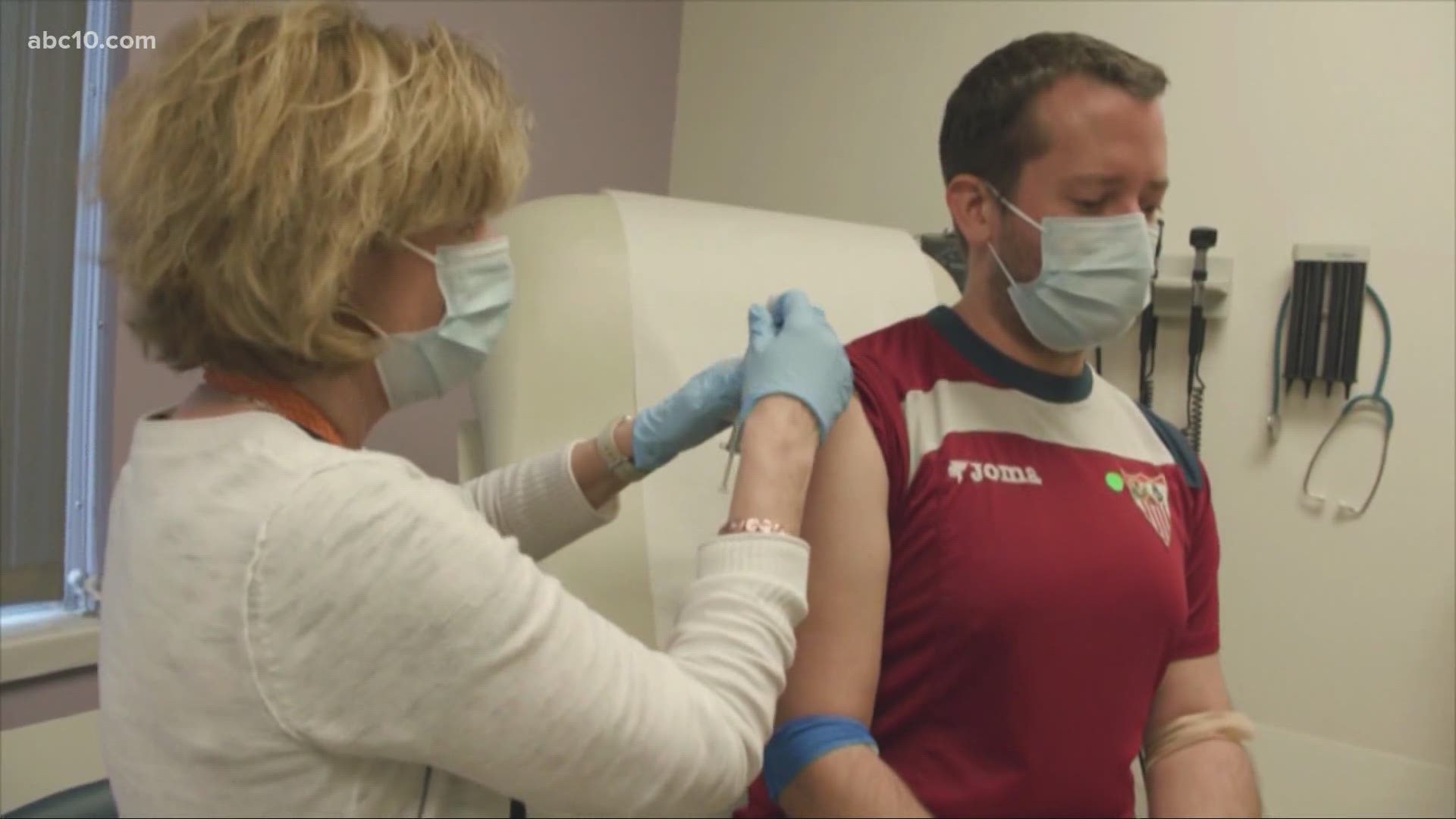SACRAMENTO, Calif. — UC Davis Health experts Dr. Dean Blumberg and UC Davis School of Medicine Dean Allison Brashear explain the milestones UC Davis and the country have achieved since the coronavirus pandemic hit the United States. While experts are still learning more about the virus and working on vaccines, there is still a lot we have already learned.
What have we learned in the last six months about COVID-19 and how to treat it?
Blumberg: We started from zero. We didn't really know anything about the virus in the beginning, so the advice we gave, initially, was not right. We've learned so much about this. Initially we were talking about don't wear a mask, if you can believe that considering what life is like now. Then we learned that masks work. That's a scientific fact. Social distancing works. We were initially focused on touching things, the mail, groceries and touching things and getting the virus that way, but it's not transmitted that way, but minor. It's really the respiratory route. I think we've come a long way on learning how to protect ourselves and others.
Brashear: We had the first community-acquired case on February 26. On March 2, we put all hands on deck across all the campuses to really dive deep into the COVID research. We had two Remdesivir trials within five days and had a test within 12 days of our first community-acquired case and that was in March. I'm pleased to say now we have had over $14.5 million in funding across UC Davis to study the virus. We've enrolled over 200 patients in the Pfizer [vaccine] trial. It's really a demonstration of strength from UC Davis and the community.
Why is it important for the clinical trials for vaccines to be diverse?
Brashear: When you do a clinical trial, you want it to be representative of the population you serve, so in the country, we want clinical trials of all types to represent the people of our country. So that's what's so important of what we were able to achieve in this particular vaccine trial.
We had 3500 individuals sign up to be part of that trial and it really represented a diverse population across California. About 30% of the people enrolled were Latinx and about 12% were in the African American population. This is unheard of in clinical trials to have such a diverse population.
COVID has taught us one thing: everyone in the community wants to give. It's been overwhelming and changed the dynamics of research.
How can we say we know the virus will be transmitted more in the winter? It seems like it's comparing the virus to the flu when they are not the same virus.
Blumberg: Coronaviruses are similar to the flu and influenza virus in that they are transmitted more in the winter than in the summer. I think the reason we had so much transmission in the summer was because so many people in the country were susceptible to the virus. This is similar to 2009 when we had H1N1, which started in the spring, and we wondered if there was going to be transmission in the summer since it is a traditional winter respiratory virus. What we saw was sustained transmission over the summer because so many people were susceptible. But we do expect an uptick in transmission and more favorable conditions for transmission in the winter for the novel coronavirus, also.
Brashear: That's why it's so important people get their flu shots this year. Actually, at the UC Davis Health emergency room, we're going to be testing for the flu and COVID in the same well because it's going to be hard to tell who's got what. So having the flu shot will be so important because you could get both at the same time.
To watch the full conversation, go to the UC Davis Facebook page.
WATCH ALSO: Sacramento says 'yes' to trick-or-treating with modifications in Halloween coronavirus guidance
Face coverings and outdoor candy set-ups are among some of the adjustments that the county wants you to try this year.

